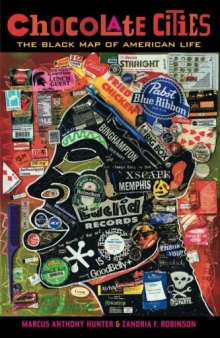دانلود کتاب Chocolate Cities: The Black Map of American Life
by Marcus Anthony Hunter and Zandria F. Robinson|
|
عنوان فارسی: شهرهای شکلات: نقشه سیاه زندگی آمریکایی |
 دانلود کتاب
دانلود کتاب
 جزییات کتاب
جزییات کتاب
Marcus Anthony Hunter is Chair of the Department of African American Studies, Associate Professor of Sociology, and he holds the Scott Waugh Endowed Chair in the Division of the Social Sciences at the University of California, Los Angeles. He is the author of Black Citymakers: How the Philadelphia Negro Changed Urban America and the president of the Association of Black Sociologists. Zandria F. Robinson is Associate Professor in Rhodes College's Department of Sociology and Anthropology. She is the author of This Ain't Chicago: Race, Class, and Regional Identity in the Post-Soul South and coeditor of Repositioning Race: Prophetic Research in a Postracial Obama Age.






 این کتاب رو مطالعه کردید؟ نظر شما چیست؟
این کتاب رو مطالعه کردید؟ نظر شما چیست؟
